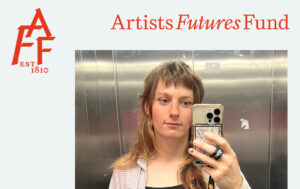How to Get Head-hunted in 2020

New research, conducted by executive search firm Novo, found that 14% of people are currently considering a new job, even in these uncertain times. Interesting, this figure skyrockets five-fold for those at executive level, with 70% currently seeking a new executive role.
With many looking to switch roles in 2020, it’s important to stand out from the crowd, and one of the best ways to land your dream job is to get noticed by head-hunters. In light of this, several of Novo Executive Search and Selection’s directors have given their invaluable advice on how you can get noticed in today’s climate, which employees of all levels can learn from.
The 5 key tips include:
ALWAYS TAILOR YOUR CV
Don’t apply for everything and anything, as you’ll get known by recruiters and red-listed. Only apply for precise roles that really do match your exact discipline and marketplace experience. Try to speak with a particular recruitment contact who is advertising the role in advance of applying to precisely ascertain what the client would like to see upon a suitable CV.
INCREASE YOUR VISIBILITY
One of the most effective ways of being recognised and identified as a talent, is to participate actively in dialogue within your field/industry. Speaking at industry events or conferences, having articles published or being quoted in relevant articles will all increase your visibility. Although the cultural fit between an individual and a potential employer will be a crucial element of the recruitment decision, most search consultants will be seeking individuals with specific skills and experience. If you’re acknowledged as an expert or specialist, you have a greater chance of being identified.
GET RECOGNISED FOR YOUR SUCCESS
The more successful you are, the more likely it is that you’ll be approached by a search firm. People who stand out are easier to find. What matters is what other people think of you; your colleagues, your former colleagues, your competitors. Are there enough people out there who will recommend you and suggest your name if they are asked their opinion?
MAKE THE MOST OF SOCIAL NETWORKING
LinkedIn, other social networking sites and search engines have changed some elements of the search process. Whilst the traditional ‘black book’ approach remains valid, most researchers will also use a plethora of online tools as part of their ‘long-list’ building process. As a result, it is advisable to build yourself a compelling social media profile. Treat LinkedIn as your marketing board. Update it on a daily basis with constructive and thought-provoking articles, comments, likes and invitations to new search consultant contacts. Ensure also, that any of your articles, industry comments and/or PR is visible online. Over-exposure is not advisable, but some visible presence online will lead to more search specialists finding you more often.
NETWORK CONSISTENTLY (AND FOR THE LONG TERM)
Many people talk about networking, fewer actually do anything about it. Networking effectively amongst your peer group and across your industry is a powerful way to increase your chances of being noticed. Make an effort to stay in touch with talented and well-connected colleagues over the long term. This is far more genuine and more likely to reward you than the ‘suddenly enthusiastic’ networking that people often end up trying when they need a job.





